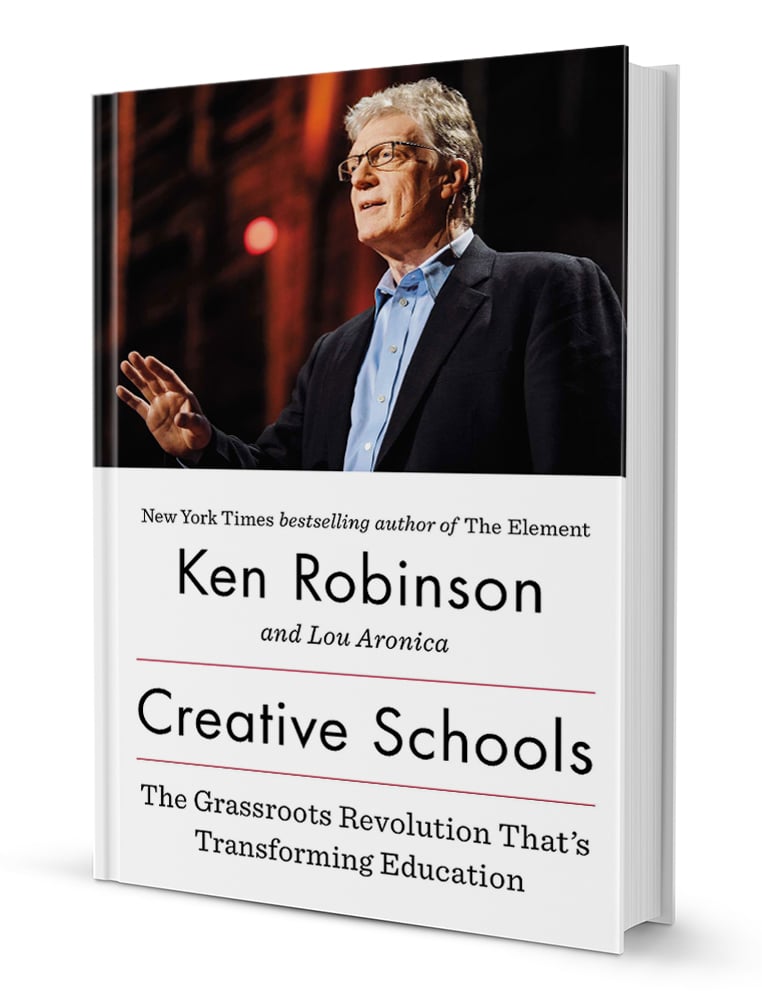 Sir Ken Robinson, known for a 2006 TED talk, Do Schools Kill Creativity?, has a new book out called Creative Schools about “transforming” education.
Sir Ken Robinson, known for a 2006 TED talk, Do Schools Kill Creativity?, has a new book out called Creative Schools about “transforming” education.
“Think of it as a jukebox cranking out all of the anti-reform hits,” advises Robert Pondiscio on Education Gadfly. “Nod your head like, yeah, as Sir Ken critiques not just standards, but competition, corporatization, back-to-basics, ‘industrial model education,’ and, inevitably, the school-to-prison pipeline.” Or, perhaps, it’s a “greatest hits album.”
Naturally, there’s praise for a certain country:
a) Finland.
b) Obviously Finland.
c) Of course it’s Finland! It’s a freakin’ Sir Ken Robinson book!
d) All of the above.
“In terms of knowledge, the standards movement favors direct instruction of factual information and skills and whole class teaching rather than group activities,” Robinson writes.
No, it doesn’t, responds Pondiscio. “Teachers are expected to ‘differentiate instruction’ at all times, and students sit in pods … because group work.”
Sir Ken’s oeuvre is well-intentioned, but it is almost entirely nonsense—a warmed-over Rousseauian fantasy suggesting all children are “natural born learners,” defying what cognitive science tells us about how knowledge and practice drive skill and competence.
It is also much easier to divine what Sir Ken dislikes about schools than what he proposes we should do about it. At several points, he compares education to organic farming. “Plants grow themselves,” he writes. “The job of the gardener is to create the best conditions for that to happen. Good gardeners create those conditions, and poor ones don’t.”
Standards and curricula aren’t the problem with education, writes Pondiscio. “They are the point.”
From time immemorial, schools have existed to transmit—consciously and unconsciously—the language, knowledge, and values of their societies at any given time and place.
It worked for Sir Ken, freeing him to think creatively, he concludes. “For those on the outside looking in—whose very existence seems lost upon Sir Ken—it’s not quite the same.”
“Robinson rightly makes the case for the rigour of creative learning – ‘creativity in any field may involve deep factual knowledge and high levels of practical skill’ – but we always need to guard against the soft bigotry of low expectations,” writes Tristram Hunt in a more positive Guardian review. Hunt fears “the worrying trend of play and expression being adequate for working-class pupils, while leaving the tough stuff, the physics and history, for their better-off peers.”